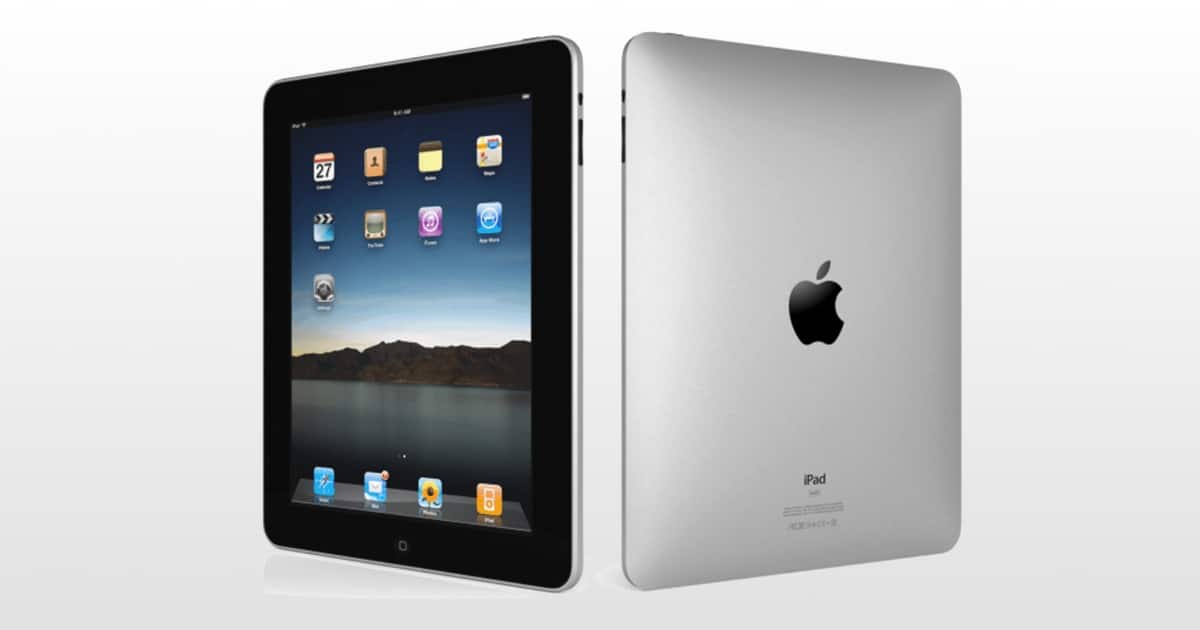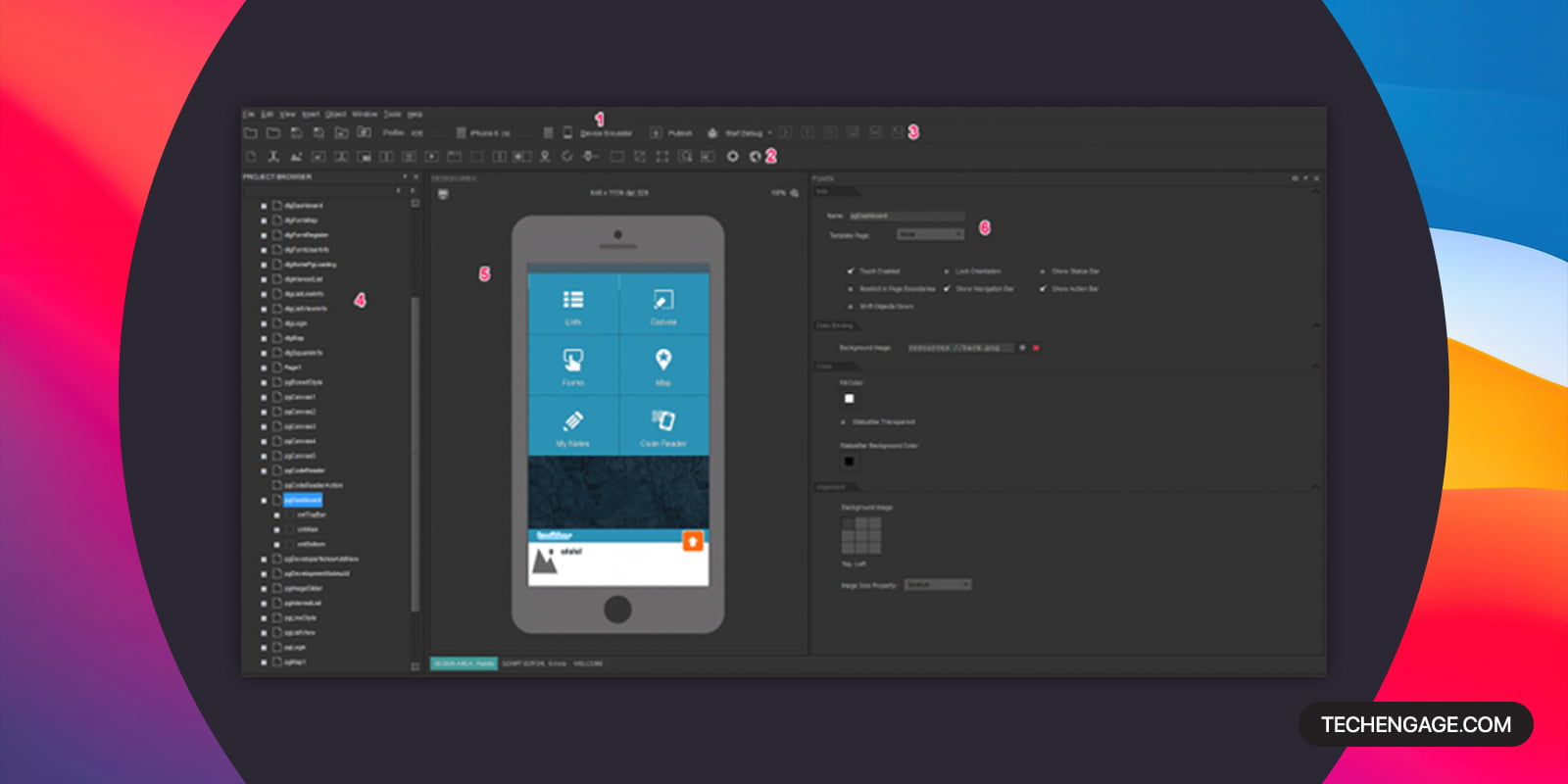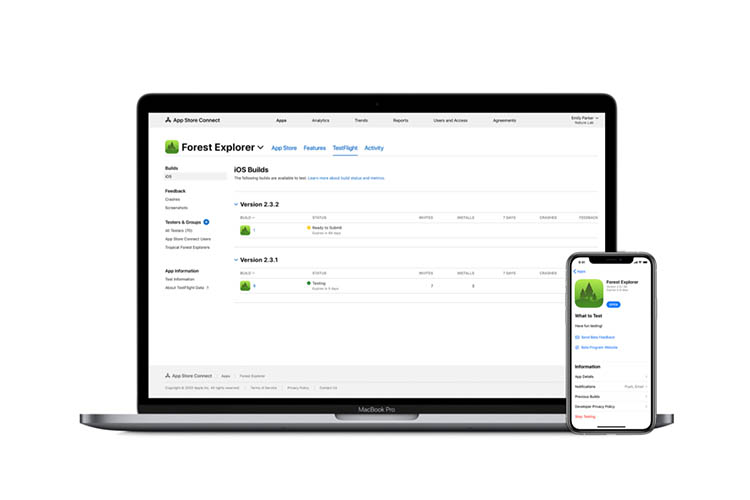Mac; MacBook Pro. The 8 Bit notes the likely reason that emulating Nintendo Switch games on M1 Macs is even possible and how an emulator could come to iOS. Developers have been. With Android apps joining iOS apps, plus the huge amount of existing Mac apps that can be used on M1 Macs and Macbooks like the MacBook Air (M1, 2020) – currently our pick for the best laptop in.
After putting us in the dark for a few months, Apple has finally launched the first few Silicon-based MacBook laptops and the Mac Mini. Apple Silicon, a name due to the custom material that Apple is using to build these chips, is expected to change the entire Mac lineup from Apple, offering enhanced performance, better power savings, and many other features.
This brand-new chip from Apple will change the way Mac devices compete with other laptops and desktops in the market, taking the best advantage of the leap that the Silicon Valley company is proud of. However, a transition like this is not just about enhanced performance and speed. For Apple, the M1 chip indicates the beginning of creating a rich ecosystem — through universal apps and beyond.
Before we talk about universal apps for Apple Silicon Macs and how they make our lives better, we’d have a brief introduction to Apple M1.
Standalone Emulator Installation. Finally, notice this statement in the Preview Github Repo link. Note: No longer needed Support for downloading the M1-based emulator was added to SDK Manager. Android Studio fails to build my large Java + C (NDK) app on the M1 - Mac mini. The Java JVM crashes during one of the steps. Torrentz4. This is true with both the built-in JVM and the Java 8 on my machine. I can build sample apps including Java + C, but not my app that is in production. The same app builds fine on.
Quick Jump to…
What’s the Apple M1 chip?
As per the technical definition, Apple M1 is an ARM-based SoC (System on a Chip) that has been completely designed by Apple Inc. This chip belongs to the Apple Silicon lineup of SoCs that Apple claims to launch as a part of its shift from previous methods.
Previously, Apple used CPUs and GPUs from Intel and AMD to power its MacBook, Mac Mini, iMac, and Mac Pro devices. However, in June 2020, Apple announced its transition from intel to Apple Silicon, promising a custom-made chip by the end of the year: Apple M1. Jaikoz audio tagger mac crack.
As a chip that powers an entire Mac device, the Apple M1 translates to many incredible things. Some of such features are:
- Apple has designed the M1 to be even more compact while increasing the performance per watt. It is a breakthrough figure when compared to what the Intel Macs are offering.
- The M1 combines multiple chips like processor, I/O, security, and memory into a single chip. Intel-based Macs had needed separate chips for all these needs. It has 16 billion transistors, just saying!
- Unified Memory Architecture, known as UMA, allows Apple M1 to share memory resources across a Mac. This translates to incredible speeds when it comes to video and image processing.
- The M1 chip also claims to give up to 3.5x CPU performance, and it Apple’s highest-performance CPU at this point. This massive processing power and optimization brings the best Mac experience.
- Capable of up to 11 trillion operations per second, M1 is the best space for machine learning. Apple says that the latest Neural Engine can offer up to 15x faster machine learning performance.
- Apple M1 also comes with an 8-core GPU inside, which can handle up to 25,000 concurrent threads at a time. This translates to up to 2x faster GPU performance without needing anything discrete.
- Because Apple has optimized every single aspect of the chip, it can offer record-breaking battery life. For instance, the 13-inch MacBook Pro runs for up to 20 hours on a single charge!
Along with all these fantastic features, we have the power of macOS Big Sur and Universal Apps.
More importantly, though, the M1 chip marks the beginning of a 2-year transition. Although Apple offers its support for Intel-based Mac devices, it won’t be the case after a few years. That is, the company is all set to abandon Intel chips.
By doing so, Apple can gain better control over how its devices perform in real life.
The Big Sur prize
We can’t talk about Apple M1 without talking about macOS Big Sur. In case you didn’t know, macOS Big Sur is the latest macOS release from Apple.
According to Apple, it has designed macOS Big Sur to assist the organization, developers, and users with the transition to Apple Silicon. This particular release comes with several features that will create an ecosystem that is powered by universal apps and easy development, among other things.
Even when we keep these core ideas aside, macOS Big Sur marks a noticeable change in the way how macOS has looked and felt. The visual overhaul itself is an impressive reason you should check it out, and you can see how Apple is trying to create a unified platform with compatible UI and app elements.
As for those devices powered by Apple M1, Big Sur has been designed to take the best advantage of the chip inside. For instance, Apple has brought in features like Instant Wake, quicker app launches, snappier system animation, and the power of Metal.
[ Related: macOS 11 Big Sur: How Fast Is It? ]
As always, Apple has pushed its security game with the M1 chip. Now that a single SoC manages everything regarding the computer, you can get additional features like hardware-verified secure boot and encryption for all files. That these security measures are built into the core architecture makes them superb.


You can check our coverage of macOS Big Sur if you want to know more about the OS release, though. Here are also top 30 free apps can uplift your macOS Big Sur experience in one way or another.
For the time being, let’s look at how macOS Big Sur makes a difference to the transition.
How the M1 Chip integrates with macOS
As we said, macOS Big Sur packs many features that help users get the best out of the Apple M1 chips. Even then, two core changes define how the transition that we talked about would take place.
#1 Universal Apps
Universal apps are applications that can run natively on both Intel-based and Silicon-based Macs. It means these apps would be run on M1-powered Macs as smoothly as they run on Intel-powered Macs. Now that a lot of developers are launching the Universal App versions of their apps, the transition would become more comfortable than ever.
To understand the importance of universal apps, you should understand that M1 and Intel chips use different architectures. The M1 chip belongs to the ARM architecture, while Intel has been following x86 architecture. However, with the launch of Big Sur, a developer can create an app that would work seamlessly on any of these architectures.
A universal app for macOS can take the best leverage of the M1 chip when it runs on an Apple Silicon-based Mac. If you have an Intel-based Mac, don’t worry; it will work just as fine. From the developers’ perspective, this step can lower the burden to a great extent. Because Apple has built everything into the latest version of Xcode, converting an app into a Universal App is an easier task.
This is the crux. If you have an Intel-based Mac, you got nothing to worry about. You will get all those great apps on your device as you used to. However, even when you upgrade to an M1-based Mac — which you’ll have to sooner or later —, you can use the same apps, with better performance and speed. For instance, the Neural Engine on the M1 can make remarkable changes in how you handle high-resolution media.
Long story short, universal apps are what enable the smoothest transition. It helps the developers create apps that serve the customers right when they are on Silicon or Intel-based Macs.
#2 Rosetta II
While Universal Apps take care of the compatibility aspect on the way forward, Rosetta II does something a lot more incredible. Rosetta II is an exclusive emulator that allows Apple Silicon-based Macs to run apps that were initially designed for Intel-based Macs.
Rosetta II is why those who bought the latest M1-powered Macs don’t have to wait for developers to launch native apps for Apple Silicon. Instead of doing that, they can download and install the Intel version of the same apps, giving the same performance Macs have provided in the past.

This is how Rosetta II works with M1-powered MacBooks and the Mac Mini. The Rosetta II emulator would understand the instructions that an old program provides to an Intel-based Mac. The emulator will then translate the same instructions to a language that the M1 chip can understand. As a user, you may not see the name on macOS. Everything it does is done in the background.
There are some crucial differences, though. For instance, Rosetta II will not bring you the super-fast speed or performance you’d get from Silicon native apps. Apple says that some made-for-Intel apps can run faster on an M1-based Mac. However, in general, a universal app or a native M1-based app would outperform an Intel-based app that runs via Rosetta II.
Long story short, Rosetta II isn’t about bringing the best speed. It’s to ensure that you can have a superb macOS experience with M1 without waiting for developers’ convenience.
This is how the M1 chip integrates with the macOS Big Sur release so that users can shift to an M1-based Mac without any hassle.
How will universal apps benefit users?
Here are some ways universal apps can benefit Mac users.
- Multitasking becomes easier than ever with the help of universal apps. Did you know that you will be able to run iOS apps on your Mac without any trouble? You can install these apps, and they do run in a window. More importantly, users will be able to achieve an impressive experience.
- Universal apps make it tension-free to upgrade from an Intel-based Mac to an M1-based Mac. In my case, when I move away from my 2019 MacBook Pro sometime later, I need not worry about any kind of compatibility issues.
Now that you know the benefits of universal apps, shall we check out the top universal apps for Silicon Macs that you can download today?

Top universal apps for Apple silicon Macs
#1 Apple Apps
As you can probably guess, Apple has updated all its app to become universal. That is, your popular apps like Safari, Keynote, Numbers, etc. have been redesigned to take the best advantage of Apple M1 Macs. More importantly, professional apps like Final Cut and Logic Pro have received updates.
Apple says that the Final Cut Pro universal app can now use the Neural Engine and advanced options for easy video transcoding. Likewise, Logic Pro X has brought enhanced performance into the package. If you’ve an M1-based app, you can also expect better performance from apps like GarageBand.
#2 Da Vinci Resolve
Da Vinci Resolve, the industry-grade film editor, is also prepared for the era of M1 Mac devices. The latest version of the suite, 17.1, has been designed to take the best advantage of the Apple Silicon while running equally smoothly on Intel-based Macs.
The developers say that the new Da Vinci Resolve will be able to bring the best results through a combination of CPU and GPU processing. The Neural Engine also helps the software to handle video exports and color-correction tasks with better efficiency.
#3 Pixelmator Pro

The latest version of Pixelmator Pro, one of the most popular photo editors for Mac, is a universal app that can run on M1 Macs and Intel-based Macs. In addition to the broad support, developers behind the app have also optimized the app for enhanced performance.
Built using Swift, this app can also make the best use of the new Neural Engine and ML features if you have an M1 MacBook Air, Pro, or Mac Mini. You can download the latest version of Pixelmator Pro from the App Store or the official website now.
#4 Darkroom
Darkroom, a popular photo editing app among iOS users, was one of the first to get into the universal apps bandwagon. When the developers decided to bring the app to macOS, they also brought in support for M1 Macs with it. If they have Big Sur installed, Intel Macs can also run this app.
Unlike the iOS version of the app, Darkroom for Mac has been optimized for enhanced performance as well as an improved User Interface. The entire design language goes in sync with the Big Sur design, and there is even an option to get a premium version of the app via the App Store.
#5 Ulysses
Ulysses has been regarded as one of the best writing apps available for Mac and iOS. Taking one of the first leaps, Ulysses has also made its universal app available on the Mac App Store. This means you can enjoy a smooth performance on both devices.
In addition to the support for M1-based Macs, Ulysses has included several features, especially a new, improved Revision Mode. This mode allows you to make comments and suggestions that make editing tasks feel like a breeze.
#6 Fantastical
Fantastical is another awesome app that is available as a universal app for M1 and Intel-based Macs. If you’re looking for a calendar app better than the built-in calendar, Fantastical is an excellent option. It comes with an improved design as well.
According to an official tweet from the developer, the latest version comes with advanced support for macOS Big Sur as well. For instance, you can avail of new widgets, Microsoft Teams support and weather alerts. You can expect these features in the iOS and iPadOS versions as well.
#7 Sparkle
Another popular app among professionals, Sparkle is one of the first apps to go Universal on M1 Macs. The version you download from the official website will now work fine with Intel and M1-based Mac devices. It should have improved performance while rendering code and exporting files.
Sparkle is an awesome app that redefines how you create great websites across multiple platforms. This site builder works close with your code to ensure the best security and privacy. There are options to add various elements like eCommerce purchases and SEO support.
#8 Nova
Nova is an excellent code editing app available for Mac and it has released a universal app as well. So, if you have an M1 Mac with you, you won’t have trouble in getting the best performance while editing/compiling a variety of codes.
[ Related: Top Online Platforms to Learn Programming Languages ]
In addition to the powerful design and customizability, you can take advantage of its themeable interface as well as flexible workflows. You can, in addition to customizing the basic settings, install extensions for extra features.
Ps2 Emulator M1 Mac
#9 Alfred
The trusty Spotlight alternative Alfred is also ready for the big transition to Apple Silicon. However, the app does not have an official universal app yet. Instead, if you have an M1-enabled MacBook or Mac Mini, you’d have an option to download the universal version.
#10 1Password
We have recommended 1Password as one of the best free password manager for Mac. Just like Alfred, it is now running an M1-optimized version alongside. There is now an option to download the Silicon version if you have a compatible Mac.
1Password offers incredible password management features that we see only in premium options. It allows you to store as many passwords as you like and access them from a multitude of devices. In the end, you can get peace of mind.
More to come…
Here are some more apps that recently received updates with Apple Silicon support. Several apps have also received compatibility updates for Apple’s latest operating system, macOS Big Sur. There will be more universal apps that run natively on Apple Silicon in the coming days.
PDFpenPro / Slack / BetterTouchTool / Cinema 4D / Downie 4 / HazeOver / iStat Menus / Keyboard Maestro / ScreenFloat / CleanMyMac X / Parallels
Ios Simulator Mac M1
We just want to remind you that the transition to M1 Macs is in its early stages. Only a few developers have shown the final builds, but more is to come. In the event itself, Apple had mentioned that apps from high-end developers like Microsoft and Adobe would have universal support in the coming months. Therefore, if you were quick enough to grab an M1 Mac, stay tuned.
Ios Emulator Mac M1 Pro
Further reading…
Android M1 Emulator
The Best Mac System Monitor to Check Mac’s Performance
macOS 11 Big Sur: How Fast Is It?
The Best Mac Cleaner (and Why You Need One)
Our Favorite Productivity Apps for Working from Home
Amazing Automation Apps Every Mac User Will Love
Best Duplicate File Finders and Removers for Mac: Affordable, Fast and Easy to Use